How do people know and perceive weather? Who gets to disseminate and output weather information?
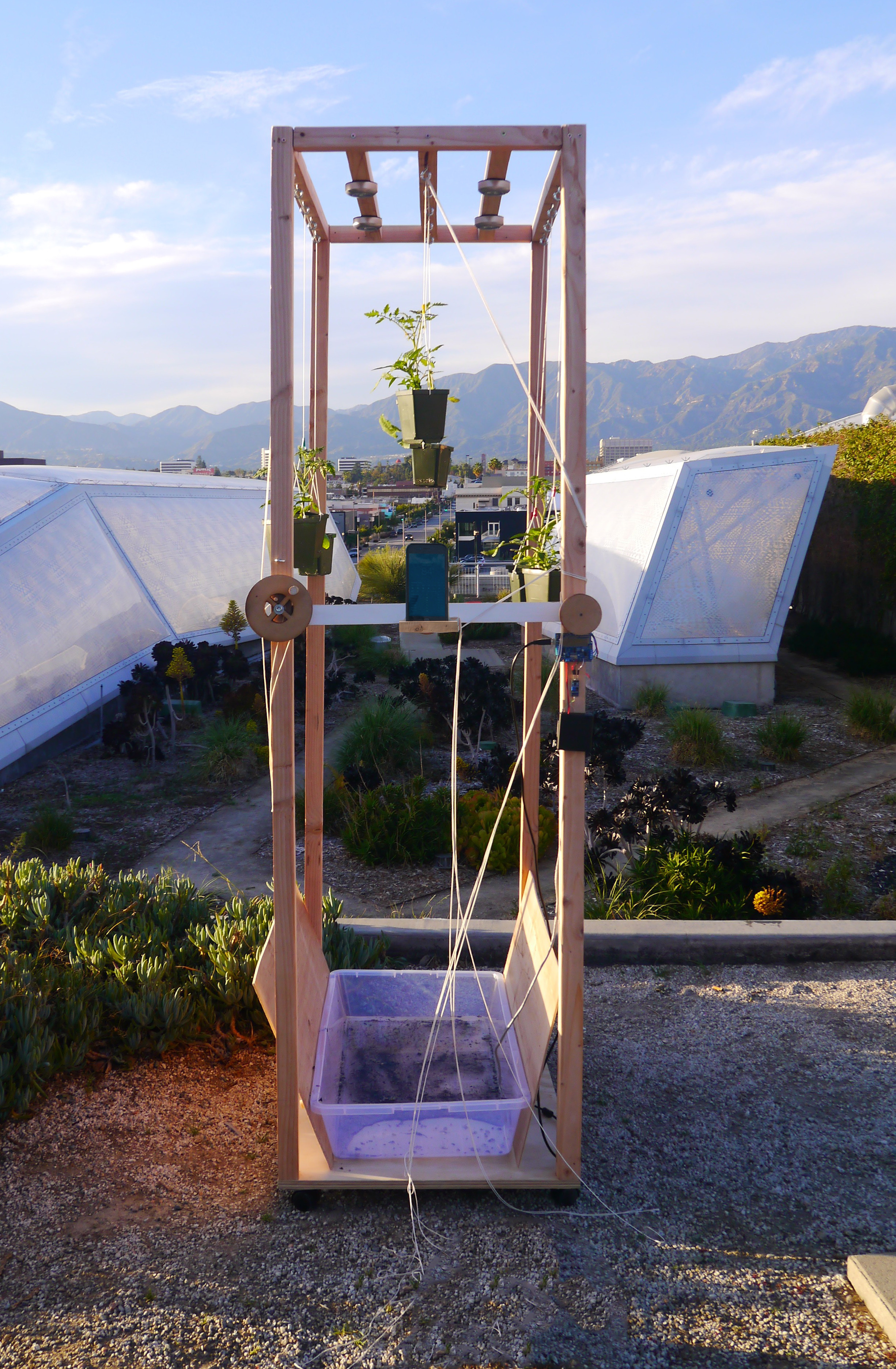

Stemming from my exploration of local weather in Wakiso, Uganda, I chose to further investigate how different people know and perceive weather. In Uganda, I looked at observational methods of weather prediction through plant materiality in a mobile, shareable farm. By choosing crops with farmers, they were able to explain how they take care of their crops. They specifically were able to to do this with climate change. While in Kampala, I noticed that there was a significant disconnect between how rural farmers understand and experience weather versus how meteorologists output the information to them via meida outlets. Furthermore, rural farmers have different ways of doing, knowing, and communicating that do not align with practices that dominate designing information and communication technologies (ICT’s).
In order to question who gets to dictate weather, I built a structure that uses three different knowledge systems to take care of plants. The hand wheel controls the first row of plants. I based this system off observations. Agrometeorological weather data directs the second row of plants. The third row is managed by what the plants want as interpreted through a moisture sensor.
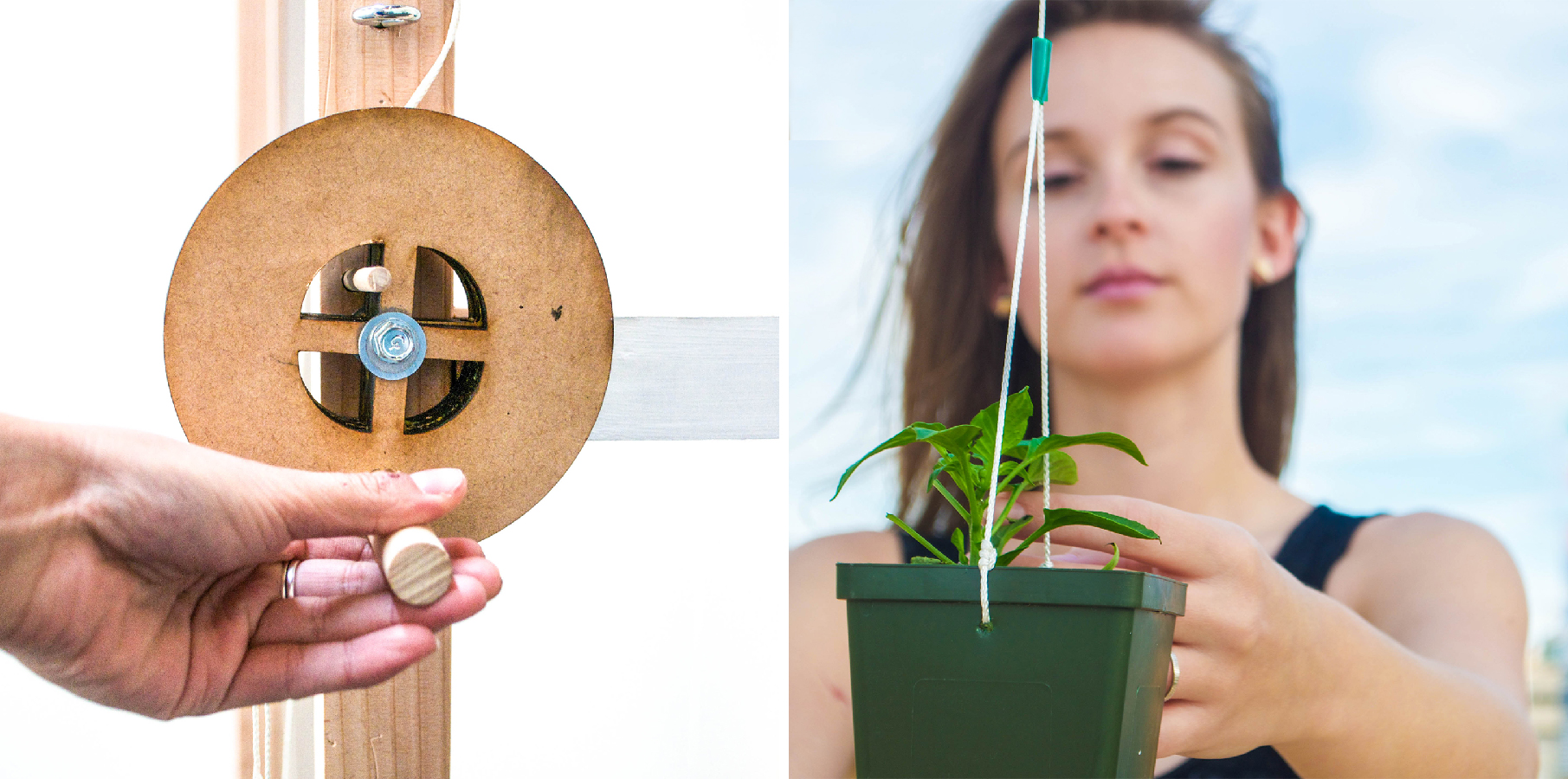

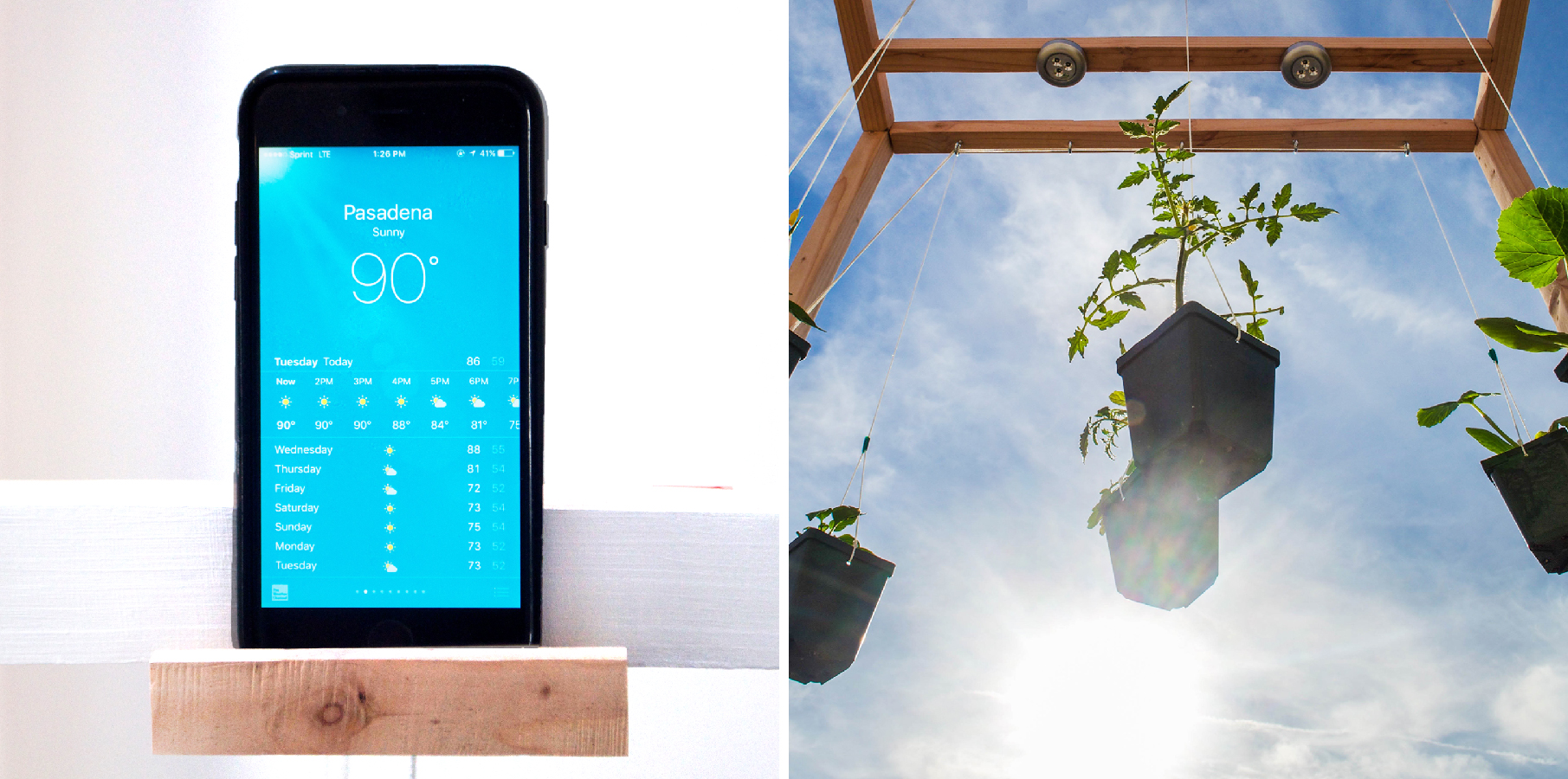

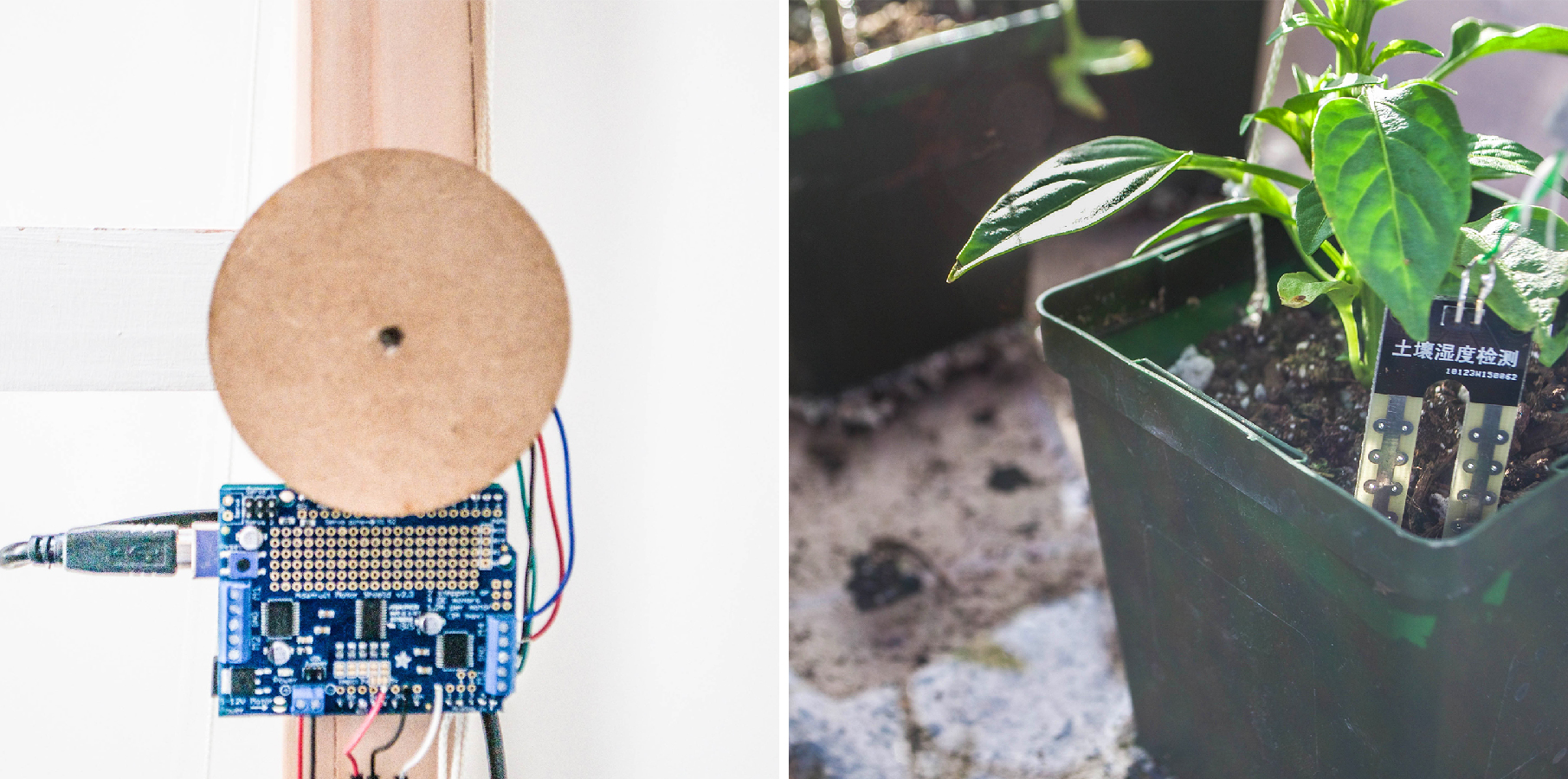

Designed For Caring
The farm needs care or the crops will die. The structure has hydroponic lights on top and a bucket of water on the bottom. The plants in each row can descend to collect water or ascend to retrieve more light based on what the knowledge system thinks it needs. Furthermore, the farm is movable, but not mobile which means that it will need care by the people in communities within close proximity of it.
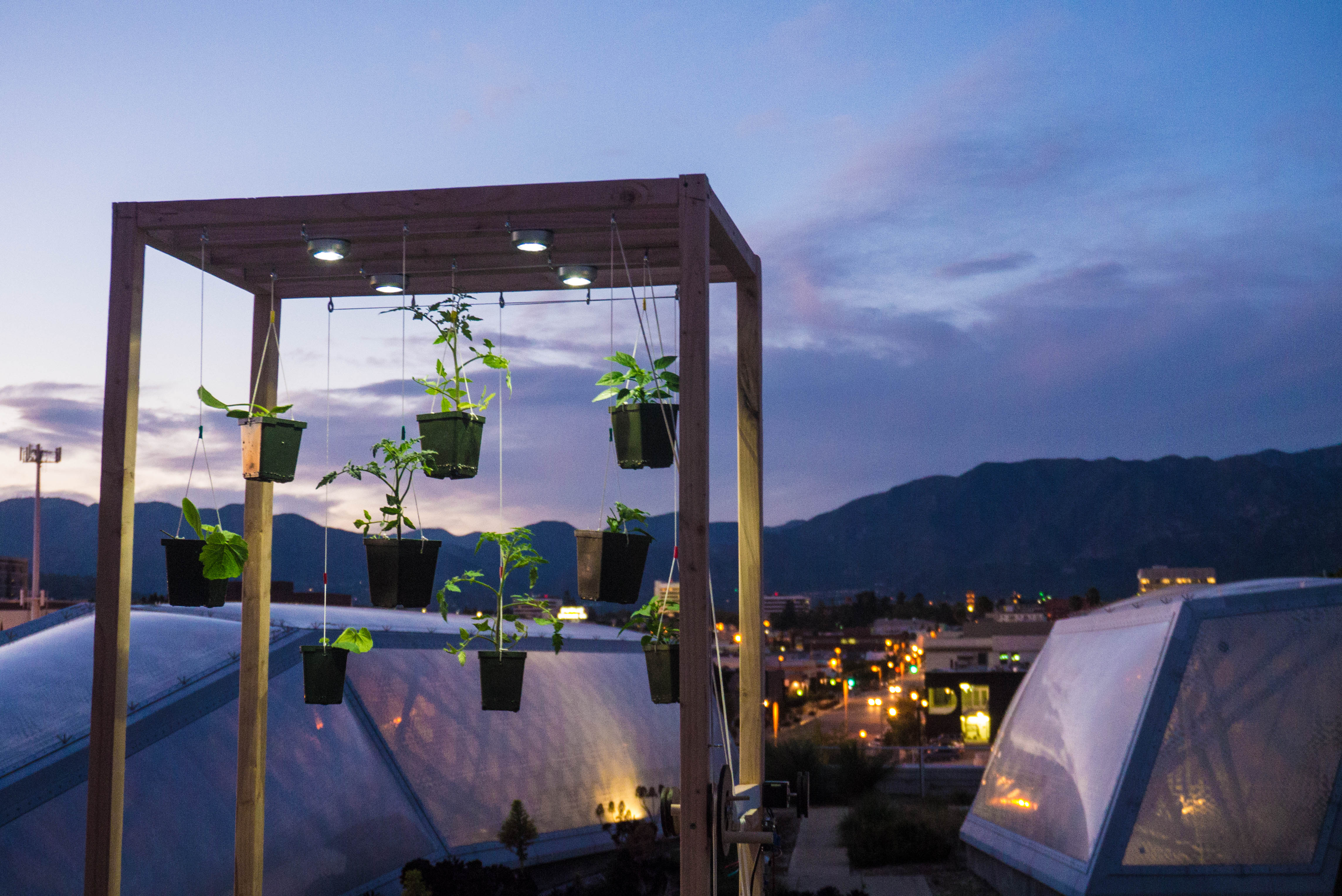

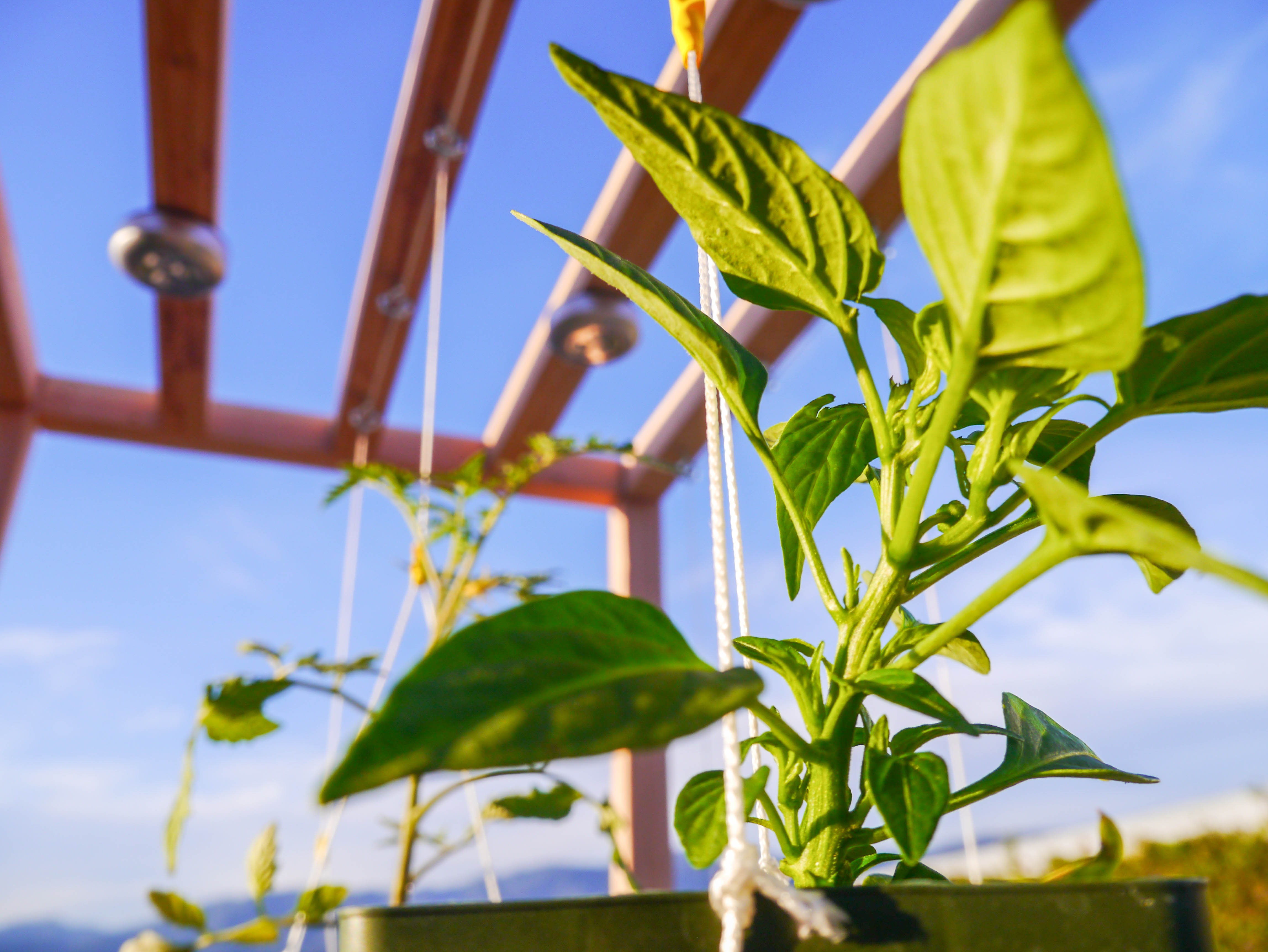

Durational Design
This farm is also a form of durational design. The immiediant implication detected challenges the dominant notion of instaneous communication that many designs possess. The idea of duration is also important within the process of immersion as a design process. Popping in for a day or a week won’t allow you to build the deep relationships needed to create meaningful designs.
https://vimeo.com/164051263
Reflections
By furthering my exploration from Uganda, I have found more information on conflicting knowledge systems regarding climate change. There’s an importance in considering and integrating modern agrometeorolgy. People who publicly disseminate it do not understand modern argometeorolgy. Within the framework of Colonialism, I want to address the conflicts that might arise when an outside system, such as a modern method of weather prediction invades an inside system, like observational forecasting. This imposition dehumanizes people by negating or replacing existing skills, when instead the knowledge systems could coexist and work together.
Further Explorations
Designs that dilute people’s experiences as a way to scale and mass-produce objects and technology dehumanizes people. Through the lens of Postcolonial theory, I want to challenge current Human-Centered Design practices within the context of developing countries. By working together with stakeholders, I hope to encourage farmers and gardeners to become active agents in programs. Specifically ones that use modern science to adapt to climate change.
Moving forward, I am interested to study the two distinct knowledge systems regarding weather, local knowledge and modern agrometerology. Moreover, I am interested in further investigating how people of different cultures know and perceive information regarding weather, as well as how these ways of knowing are informed by culturally specific beliefs and methods of communication. Therefore, I want to work with farmers and meteorologists in areas that are heavily affected by climate change such as Cambodia, Bangladesh, or Mozambique.
Professor: Sean Donahue & Elizabeth Chin
Course: Thesis Gateway
Term: Spring 2016


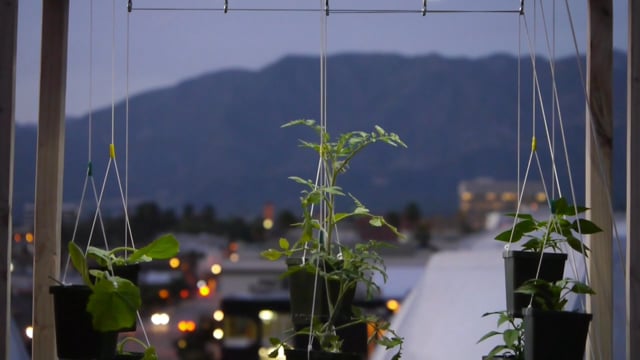
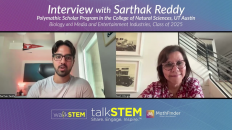
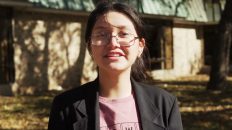



Add comment